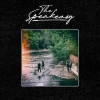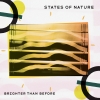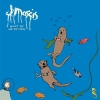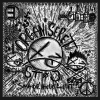Gig Reviews
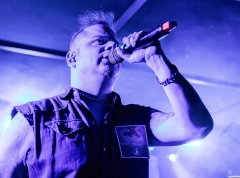
Thy Catafalque
Stengade, Copenhagen, DEN - 6/4
Album Reviews
RIAA outlines why they sue college students living in poverty
Posted by PP on 26/03/07
Previous NextRIAA has been kind enough to tell us why they want to destroy the lives of poor students who couldnt afford the music even if they wanted to buy it, and download it instead. Why RIAA sues you? Read below:
As many in the higher education community are well aware from news coverage here and elsewhere, the Recording Industry Association of America (RIAA), on behalf of its member labels, recently initiated a new process for lawsuits against computer users who engage in illegal file-trafficking of copyrighted content on peer-to-peer (P2P) systems. In the new round of lawsuits, 400 of these legal actions were directed at college and university students around the country. The inclusion of so many students was unprecedented. Unfortunately, it was also necessary.
In the three and a half years since we first began suing individuals for illegal file-trafficking, we have witnessed an immense growth in national awareness of this problem. Today, virtually no one, particularly technology savvy students, can claim not to know that the online “sharing” of copyrighted music, movies, software and other works is illegal. By now, there is broad understanding of the impact from this activity, including billions of dollars in lost revenue, millions of dollars in lost taxes, thousands of lost jobs, and entire industries struggling to grow viable legitimate online market places that benefit consumers against a backdrop of massive theft.
We have made great progress — both in holding responsible the illicit businesses profiting from copyright infringement and in deterring many individuals from engaging in illegal downloading behavior. Nevertheless, illegal file-trafficking remains a significant and disproportionate problem on college campuses. A recent survey by Student Monitor from spring 2006 found that more than half of college students download music and movies illegally, and according to the market research firm NPD, college students alone accounted for more than 1.3 billion illegal music downloads in 2006.
We know some in the university community believe these figures overstate the contribution of college students to the illegal file-trafficking problem today. Yet new data confirms that students are more prone to engaging in this illegal activity than the population at large. While college students represented only 10 percent of the sample in the online NPD study, they accounted for 26 percent of all music downloading on P2P networks and 21 percent of all P2P users in 2006. Furthermore, college students surveyed by NPD reported that more than two-thirds of all the music they acquired was obtained illegally.
Moreover, our focus on university students is not detracting from our continuing enforcement efforts against individuals using commercial Internet Service Provider (ISP) accounts to engage in this same behavior. Indeed, we have asked ISPs to participate in the same new process that we have implemented for university network users.
Yet this is about far more than the size of a particular slice of the pie. This is about a generation of music fans. College students used to be the music industry’s best customers. Now, finding a record store still in business anywhere near a campus is a difficult assignment at best. It’s not just the loss of current sales that concerns us, but the habits formed in college that will stay with these students for a lifetime. This is a teachable moment — an opportunity to educate these particular students about the importance of music in their lives and the importance of respecting and valuing music as intellectual property.
The prevalence of this activity on our college campuses should be as unacceptable to universities as it is to us. These networks are intended for educational and research purposes. These are the environments where students receive the guidance necessary to become responsible citizens. Institutions of higher education, of all places, are where people should learn about the value of intellectual property and the importance of protecting it.
The fact that students continue to engage in this behavior is particularly egregious given the extraordinary lengths to which we have gone to address the problem. Our approach always has been and continues to be collaborative — partnering with and appealing to the higher motives of universities. We have met personally with university administrators. We have provided both instructional material and educational resources, including an orientation video to help deter illegal downloading. We have worked productively through organizations like the Joint Committee of the Higher Education and Entertainment Communities. We have participated in Congressional hearings.
We have informed schools of effective network technologies to inhibit illegal activity. We have licensed legitimate music services at steeply discounted rates for college students and helped to arrange partnership opportunities between universities and legitimate services. We have stepped up our notice program to alert schools and students of infringing activity. And, of course, we have as a last resort brought suit against individual file-traffickers.
With this latest round of lawsuits, we have initiated a new pre-lawsuit settlement program intended to allow students to voluntarily settle claims before a suit is actually filed. We have asked for school administrations’ assistance in passing our letters on to students in order to give them the opportunity to settle a claim at a discounted rate and before a public record is created. This is a program initiated in part as a response to defendants who told us they would like this opportunity, and we are encouraged by the swift response of so many schools. Lawsuits are by no means our desired course of action. But when the problem continues to persist, year after year, we are left with no choice.
An op-ed writer recently published in this forum described this approach as bullying. There is a big difference between using “bullying tactics” and using a “bully pulpit” to make an important point. Should we ignore this problem and stand silent as entire generations of students learn to steal? Should we not point out that administrators are brushing off responsibility, choosing not to exercise their moral leadership on this issue? This problem is anything but ours and ours alone. If music is stolen with such impunity, what makes term papers any different? Yet we know university administrators very aggressively pursue plagiarism. Why would universities — so prolific in the creation of intellectual capital themselves — not apply the same high standards to intellectual property of all kinds? This is, after all, a segment of our economy responsible for more than 6 percent of our nation’s GDP.
Furthermore, a Business Software Alliance study conducted last year found that 86 percent of managers say that the file-sharing attitudes and behaviors of applicants affect on their hiring decisions. Don’t administrators have an obligation to prepare students for the real world, where theft is simply not tolerated? Our strategy is not to bully but to point out that the self-interest of universities lies remarkably close to the interests of the entertainment industries whose products are being looted. And, most importantly, we have sought to do so in a collaborative way.
It doesn’t have to be like this. We take this opportunity to once again ask schools to be proactive, to step up and accept responsibility for the activity of their students on their network — not legal responsibility, but moral responsibility, as educators, as organizations transmitting values. Turning a blind eye will not make the problem go away; it will further ingrain in students the belief that a costly and illegal pastime is sanctioned, and even facilitated, by school administrations.
The necessary steps are simple. First, implement a network technical solution. Products like Red Lambda’s cGrid are promising as effective and comprehensive solutions that maintain the integrity, security, and legal use of school computing systems without threatening student privacy. Some schools have used these products to block the use of P2P entirely, realizing that the overwhelming, if not sole, use of these applications on campus is to illegally download and distribute copyrighted works. For schools that do not wish to prohibit entirely access to P2P applications, products such as Audible Magic’s CopySense can be used to filter illegal P2P traffic, again, without impinging on student privacy.
Second, offer a legal online service to give students an inexpensive alternative to stealing. One such service, Ruckus, is funded through advertising and is completely free to users. When schools increasingly provide their students with amenities like cable TV, there is simply no reason not to offer them cheap or free legal access to the music they crave.
Third, take appropriate and consistent disciplinary action when students are found to be engaging in infringing conduct online. This includes stopping and punishing such activity in dorms and on all Local Area Networks throughout a school’s computing system.
Some administrations have embraced these solutions, engaged in productive dialogue with us to address this problem, and begun to see positive results. We thank these schools and commend them for their responsible actions.
Yet the vast majority of institutions still have not come to grips with the need to take appropriate action. As we continue our necessary enforcement measures — including our notices and pre-lawsuit settlement initiative — and as Congress continues to monitor this issue with a watchful eye, we hope these schools will fully realize the harm their inaction causes them and their students. We call upon them to do their part to address this continuing, mutual problem
 Twitter
Twitter Facebook
Facebook
